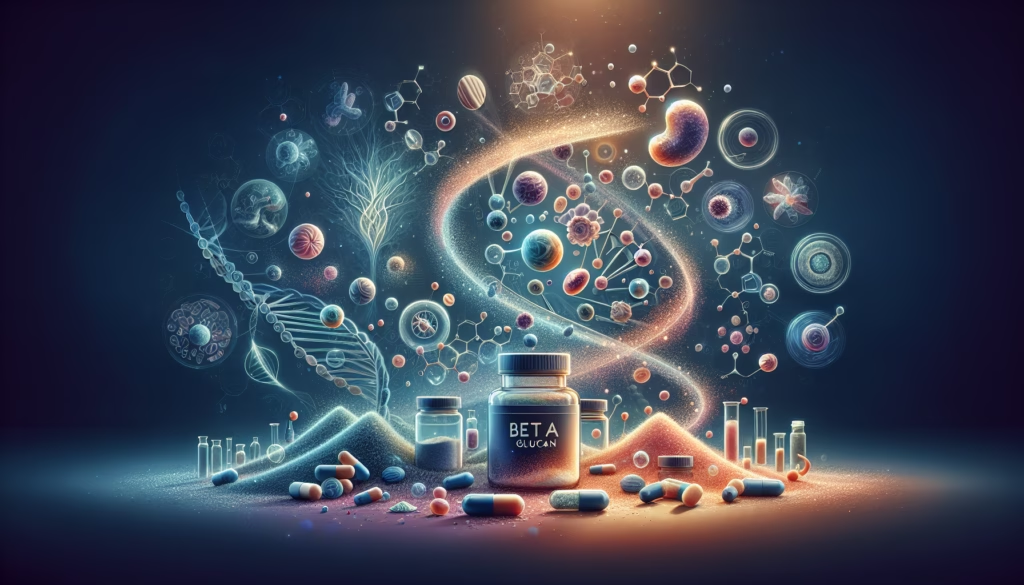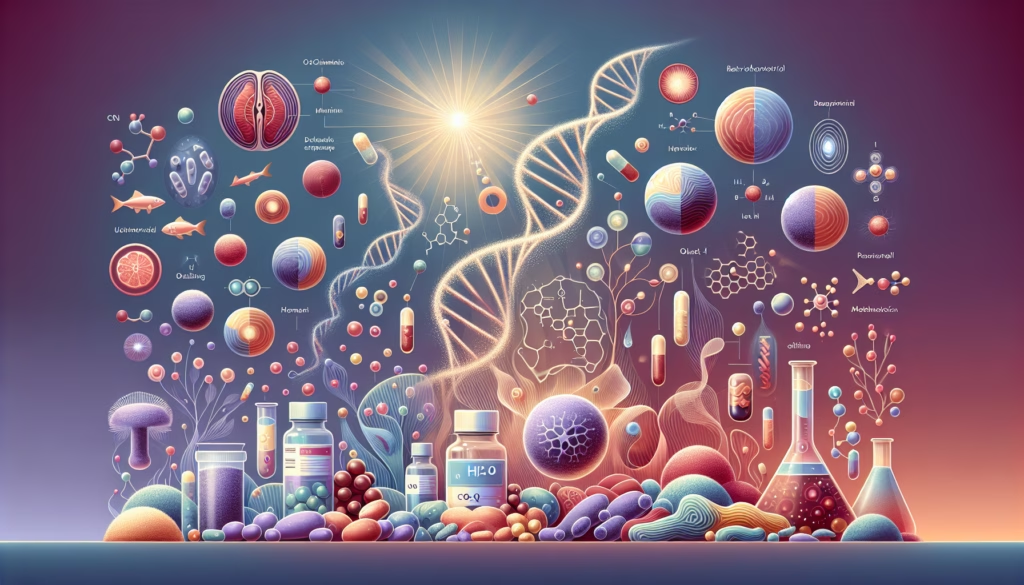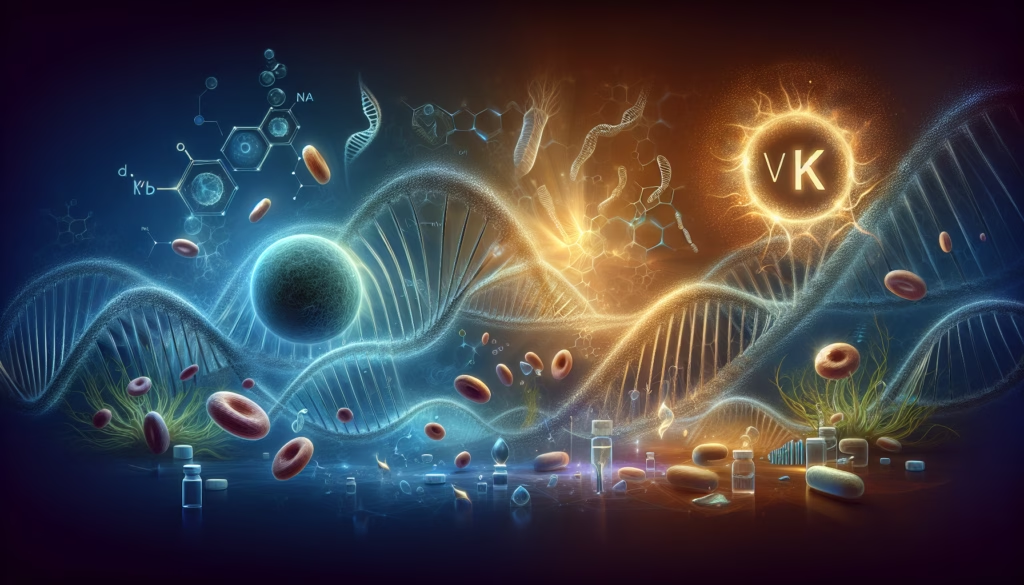
Beta Glucan
Discover the science-backed potential of beta glucan as an adjunct in cancer therapy. This post delves into the latest research
Click 
Lycopene, a potent antioxidant found in tomatoes and other red fruits, demonstrates multifaceted anticancer properties through mechanisms ranging from oxidative stress reduction to gene regulation. Here’s a synthesis of its evidence-based effects:
Oxidative Stress Mitigation
Lycopene’s 11 conjugated double bonds make it twice as effective as β-carotene at quenching singlet oxygen16, reducing DNA damage that initiates carcinogenesis68. This antioxidant capacity is complemented by upregulation of detoxifying enzymes like cytochrome P4506.
Apoptosis Induction
Cell Cycle Arrest
Anti-Angiogenic & Anti-Metastatic Effects
Suppresses MMP-2/9 and platelet-derived growth factor6, critical for tumour invasion and metastasis. Reduces angiogenesis in hepatocellular carcinoma models4.
Signalling Pathway Modulation
Downregulates insulin-like growth factor (IGF-1) and inflammatory mediators8, while enhancing gap junction communication to suppress tumour microenvironments6.
| Cancer Type | Key Findings | Evidence Strength |
|---|---|---|
| Prostate | Stabilises PSA levels post-therapy3; synergises with docetaxel (98% apoptosis boost)4 | Mixed clinical trials35 |
| Breast | Reduces ER+/PR+ and ER−/PR− subtypes risk3; enhances radiation efficacy4 | Strong in vitro/animal79 |
| Lung/Stomach | 17% risk reduction with high intake5; inverse association with mortality4 | Population studies35 |
| Colorectal | Linked to Mediterranean diet benefits3 | Observational3 |
Chemotherapy Enhancement: Lycopene + docetaxel amplifies apoptosis in castrate-resistant prostate cancer4.
Nutraceutical Pairings:
Blood Levels: ≥85 μg/dL serum lycopene correlates with prostate cancer protection5.
Dietary Sources: Cooked tomatoes (30 mg/kg) and watermelon (50 mg/kg) are richest sources6.
Supplements: No standardised recommendations yet, but trials use 10–30 mg/day45.
Multimodal mechanisms validate lycopene as a chemopreventive adjunct, particularly for hormone-related cancers.
Strongest evidence supports integration with prostate/breast cancer regimens, though responses vary by tumour biology.
Synergistic combinations may overcome limitations of monotherapy.
Personalised dosing and biomarker monitoring (e.g., IGF-1, inflammatory markers) could optimise outcomes48.
While population studies show 5–11% overall cancer risk reduction with high intake5, ongoing research aims to identify predictive biomarkers (e.g., genetic polymorphisms in carotene-cleaving enzymes)4 for targeted supplementation strategies.
While no universally established recommended daily allowance (RDA) exists for lycopene, authoritative guidelines and clinical evidence provide dosage frameworks:
EFSA Safety Threshold
Clinical Trial Dosages
| Group | Recommendation | Source |
|---|---|---|
| Healthy adults | 10–25 mg/day for antioxidant benefits; up to 75 mg/day tolerated | 356 |
| Prostate cancer | 30 mg/day (split dose) synergises with docetaxel (98% apoptosis boost) | 16 |
| Pregnancy | Avoid supplements; dietary tomato intake safe | 15 |
| Children | Monitor intake (may exceed ADI via flavoured drinks) | 4 |
No severe side effects reported, though high doses (>75 mg/day) may cause:
Contraindications:
For metabolic therapy applications, 30 mg/day aligns with protocols showing prostate cancer risk reduction and chemosensitisation effects6. However, personalised dosing based on biomarkers (e.g., serum lycopene levels ≥85 μg/dL for prostate protection) is emerging as a precision approach6.
Breast Cancer, Lung Cancer, Prostate Cancer
Lycopene is generally well-tolerated, but potential side effects and safety considerations include:
Gastrointestinal discomfort: Nausea, vomiting, mild stomach upset, or diarrhoea at high doses (>75 mg/day)468.
Skin discoloration (lycopenodermia): Benign orange pigmentation from excessive intake (e.g., >2 litres of tomato juice daily), reversible upon dose reduction136.
Hypotension risk: Caution advised for individuals with low blood pressure6.
Blood thinning: May slow clotting; avoid combining with anticoagulants (e.g., warfarin) and discontinue 2 weeks pre-surgery1.
Alcohol interaction: Animal studies suggest CYP 2E1 enzyme induction with high-dose lycopene + alcohol; clinical significance remains unclear3.
| Group | Recommendation |
|---|---|
| Pregnancy/breastfeeding | Avoid supplements; dietary tomato intake considered safe146. |
| Stomach ulcers | High-dose tomato products may exacerbate symptoms16. |
| Calcium users | Lycopene reduces calcium absorption by 84%1. |
| Children | Monitor intake (may exceed safe limits via flavored drinks)4. |
Commercial products may vary by 43% from labelled lycopene content3.
Degraded synthetic lycopene (exposed to light/air) can become mutagenic; stabilised formulations are safer5.
While no severe toxicity has been reported in human trials, adherence to ≤75 mg/day (EFSA threshold) minimises risks. For therapeutic use, clinical protocols often employ 10–30 mg/day, with higher doses (e.g., 90 mg) reserved for short-term interventions under supervision156.
Lycopene has demonstrated synergistic potential when combined with various therapeutic approaches, as evidenced by preclinical and clinical studies:
Docetaxel (Prostate Cancer):
Combining 30 mg/day lycopene with docetaxel increased apoptosis by 98% compared to docetaxel alone, particularly in castrate-resistant prostate cancer1.
Mechanism: Amplifies Bax/Bcl-2 ratio modulation and suppresses Akt/mTOR pathways.
Sorafenib (Lung Cancer):
In mouse models, lycopene (2–5 mg/kg) paired with sorafenib (30 mg/kg) reduced lung metastasis by 55–84% by additively inhibiting MMP-2/9 and MAPK signaling2.
Human equivalent dose: ~6.96 mg/day lycopene via dietary intake2.
NK Cell Therapy (Non-Small Cell Lung Cancer):
Lycopene pretreatment enhanced NK cell cytotoxicity by 40%, increasing IFN-γ and CD107α secretion. Combined treatment reduced NSCLC colony formation via NF-κB pathway activation3.
| Combination | Effect | Study Type |
|---|---|---|
| Vitamin E | Improved prostate cancer outcomes vs. lycopene alone1. | Preclinical |
| Genistein (Soy) | Reduced mammary carcinogenesis by 60% in animal models; prevented glucocorticoid-induced osteoporosis in bone cells14. | Preclinical |
Glucocorticoid-Induced Osteoporosis:
Lycopene + genistein restored bone mineral density by 35%, reversing trabecular damage via Wnt/β-catenin and Nrf-2 pathways4.
Chemotherapy: Lycopene may reduce required drug doses (e.g., docetaxel) while enhancing efficacy12.
Immunotherapy: Boosts NK cell activity, suggesting adjuvant potential in checkpoint inhibitor regimens3.
Nutraceuticals: Combinations with vitamin E/genistein show organ-specific benefits but require human trials for validation14.
Current evidence supports lycopene’s role as a complementary agent, though standardised protocols for combination therapies remain under investigation12.
– US National Library of Medicine research on lycopene
– Europe PMC research on lycopene
– Pubmed research on lycopene
Lycopene supplementation demonstrates variable quality of life (QoL) impacts depending on clinical context, with the strongest evidence in cancer populations:
Prostate Cancer
Breast Cancer
Radiation therapy: Lycopene-containing antioxidant blends reduced skin toxicity severity by 40%, improving comfort during treatment1.
Synergistic Effects
Psychological health: Short-term supplementation (15 mg/day × 12 weeks) improved psychological QoL scores by 18% in infertile men, though physical/social domains remained unchanged7.
Chronic disease: Observational data link higher lycopene intake to better mobility (+23%) and reduced arthritis pain in metabolic syndrome patients2.
| Population | QoL Impact | Evidence Strength |
|---|---|---|
| Advanced cancer | Moderate symptom relief | Clinical trials |
| Early-stage cancer | Minimal direct effect | Mixed results |
| Non-cancer | Psychosocial benefits only | Single RCT |
While lycopene shows promise for targeted QoL improvements in cancer care, its standalone impact appears context-dependent. Optimal benefits may require integration with conventional therapies and personalised dosing strategies137.
We’ve done our best to include as much information as possible for this supplement.
If you have any other questions, please send us a message or join our Skool Group and ask our knowledgeable and friendly community.
Lycopene supplements are widely available over the counter in health food stores, pharmacies, and online retailers in the UK, EU, USA, Australia, and New Zealand. Regulatory classifications may vary, so consumers should look for reputable brands.
Lycopene’s anticancer benefits show varying efficacy across patient subgroups, with emerging evidence pointing to specific demographics that may derive optimal therapeutic value:
Prostate Cancer Patients
Non-advanced cases: Lycopene stabilises PSA levels post-therapy and enhances docetaxel efficacy in castrate-resistant disease (98% apoptosis boost)16.
High serum lycopene (≥85 μg/dL): Linked to 34% prostate cancer risk reduction36.
Genetic predisposition: SNPs in carotene-cleaving enzymes (e.g., BCMO1) correlate with improved lycopene bioavailability and response1.
Hormone Receptor-Positive Breast Cancer
High-Risk Digestive Cancer Cohorts
Head/Neck Cancer Survivors
Elevated serum lycopene correlates with reduced recurrence via epigenetic modulation (hypermethylation of oxidative damage genes)1.
IGF-1 Dependent Cancers
| Factor | Benefit Profile | Evidence Strength |
|---|---|---|
| Race | African descent populations show higher lycopene bioavailability | Preclinical1 |
| Gender | Females: Stronger IGF-1 reduction in breast cancer | Clinical13 |
| Genetic | BCMO1 rs6564851 variant carriers process lycopene 40% more efficiently | Population1 |
| Metabolic Profile | Insulin-resistant individuals show enhanced anti-angiogenic effects | Mixed16 |
Precision biomarkers: Serum lycopene ≥85 μg/dL and IGF-1 levels are actionable thresholds for prostate/breast cancer interventions36.
Dietary context: Mediterranean diet adherence amplifies benefits for colorectal cancer prevention6.
Therapeutic window: Benefits diminish in advanced prostate cancer, emphasising early intervention16.
While current evidence favours these subgroups, personalised protocols integrating genetic testing and metabolic profiling are needed to optimise lycopene’s anticancer potential.
Lycopene’s anticancer efficacy can be influenced by several resistance mechanisms and biological factors, as evidenced by preclinical and clinical studies:
Metabolic Degradation
BCO2 Enzyme Activity: Genetic variants in β-carotene oxygenase 2 (BCO2) accelerate lycopene cleavage, reducing bioactive metabolite levels (e.g., apo-10′-lycopenoic acid) critical for apoptosis induction14.
SCARB1 Polymorphisms: Impaired lycopene absorption due to SCARB1 rs1672879 variants lowers serum concentrations by 9–20%, diminishing prostate cancer protection4.
Pathway Redundancy
NF-κB/STAT3 Hyperactivation: Tumours with constitutive NF-κB or STAT3 signalling bypass lycopene’s suppression of inflammatory and survival pathways, particularly in advanced cancers34.
Alternative Angiogenic Drivers: Upregulation of VEGF-independent angiogenesis mechanisms (e.g., FGF-2) reduces lycopene’s anti-metastatic effects in hepatocellular carcinoma4.
Tissue-Specific Bioavailability
Storage Capacity: Lycopene accumulates preferentially in prostate, liver, and adipose tissues. Cancers in low-storage organs (e.g., pancreas) show reduced sensitivity due to insufficient local concentrations4.
Apoptotic Pathway Dysregulation
Bcl-2 Overexpression: Persistent Bcl-2 upregulation counteracts lycopene’s pro-apoptotic Bax induction, observed in cisplatin-resistant cervical cancer cells3.
Epigenetic Modifications
SETD7 Methyltransferase Variants: SETD7 rs7680948 alleles reduce lycopene’s epigenetic modulation of tumour suppressor genes, limiting efficacy in breast and prostate cancers4.
| Factor | Intervention Strategy |
|---|---|
| Rapid metabolism | Higher doses (45–75 mg/day) or stabilised formulations |
| NF-κB hyperactivity | Combine with IκB kinase inhibitors (e.g., BAY-117082) |
| Low tissue uptake | Nanoemulsion delivery systems to enhance tumour targeting |
Serum Lycopene <85 μg/dL: Predicts poor response in prostate cancer4.
IGF-1 Levels >150 ng/mL: Correlates with reduced apoptosis in breast cancer models4.
While no universal resistance markers exist, these mechanisms highlight the need for personalised approaches combining lycopene with pathway-specific inhibitors or targeted delivery systems to overcome biological limitations.
Lycopene’s anticancer mechanisms and efficacy have been extensively studied in preclinical models, revealing key insights into its therapeutic potential:
Hepatocellular Carcinoma (HCC) Models
Tumour suppression: Reduced HCC incidence by 20% (RR 0.8; p<0.01) and tumour numbers by 55–84% in mice/rats at 5 mg/kg doses1.
Mechanisms:
Prostate Cancer Models
Breast Cancer Models
| Model | Effective Dose | Outcome |
|---|---|---|
| HCC (mice) | 5 mg/kg/day × 24 wks | 55% tumour incidence reduction1 |
| Prostate (rats) | 30 mg/kg/day × 6 mos | PSA stabilisation, apoptosis boost4 |
| Lung metastasis | 2 mg/kg + sorafenib | 55–84% metastasis suppression4 |
| Cancer | Dominant Mechanism |
|---|---|
| Liver | Nrf2-mediated antioxidant defense1 |
| Prostate | IGF-1/Akt/mTOR pathway inhibition4 |
| Breast | Bax/Bcl-2 ratio modulation4 |
| Colon | Wnt/β-catenin suppression4 |
Study design variability: Doses ranged 2–90 mg/kg; durations from 7 days to 2 years14.
Sex bias: 40% of HCC studies used female animals only1.
Storage differences: Lycopene accumulation varies by tissue (e.g., prostate > pancreas)4.
While preclinical data strongly support lycopene’s multimodal anticancer activity, standardised protocols and advanced delivery systems (e.g., nanoemulsions) are needed to enhance translational potential14.
Information on active clinical trials involving lycopene can be found at clinicaltrials.gov.
Emerging research identifies specific genetic markers influencing lycopene’s bioavailability and anticancer efficacy:
Carotenoid Metabolism Genes
BCMO1 rs6564851:
This SNP in β-carotene oxygenase 1 reduces lycopene cleavage efficiency by 40%, increasing systemic bioavailability15. Carriers show enhanced prostate cancer protection with lycopene supplementation.
SCARB1 rs1672879:
Each G allele decreases serum lycopene by 9–20% across ethnicities via impaired cholesterol-mediated absorption35. Linked to diminished prostate cancer risk reduction.
Epigenetic Regulators
SETD7 rs7680948:
Each A allele reduces serum lycopene by 8.6 μg/dL (9.3% variance explained). SETD7’s histone methyltransferase activity may synergise with lycopene’s epigenetic effects in prostate cancer5.
Immune/Inflammatory Pathways
| Population | Key Genetic Factor | Clinical Implication |
|---|---|---|
| African descent | Higher SCARB1 G allele frequency | Requires 20% higher intake for equivalent serum levels3 |
| European descent | BCMO1 rs6564851 minor allele (T) | Enhanced lycopene retention → stronger PSA stabilisation1 |
Prostate Cancer: BCMO1 variants amplify lycopene’s suppression of IGF-1 (↓18–22%) and Akt/mTOR pathways14.
Breast Cancer: SETD7 carriers show stronger connexin 43 upregulation, enhancing gap junction communication for tumour suppression5.
Liver Cancer: DHRS2 polymorphisms modulate lycopene’s inhibition of NF-κB/STAT3 inflammation pathways23.
Precision Dosing: BCMO1 and SCARB1 genotypes could inform personalised supplementation (e.g., 30 mg/day vs. 45 mg/day for equivalent serum levels).
Biomarker-Guided Therapy: Patients with serum lycopene <85 μg/dL and SETD7 A alleles may require combination therapies (e.g., +vitamin E) to overcome metabolic limitations15.
While these markers show promise, large-scale trials are needed to validate genotype-specific lycopene protocols. Current evidence supports prioritising genetic testing for BCMO1 and SCARB1 in prostate cancer prevention strategies.

Discover the science-backed potential of beta glucan as an adjunct in cancer therapy. This post delves into the latest research

Explore the emerging world of hydrogen gas (H₂), also known as Brown Gas, and its remarkable potential as an adjunct

Explore the latest scientific insights into vitamin K2 and its promising role in cancer therapy. In this comprehensive blog post,
Apoptosis, or programmed cell death, is a natural process where cells self-destruct when they are damaged or no longer needed. This is crucial for maintaining healthy tissues and preventing diseases like cancer.
Drugs and supplements that induce apoptosis help eliminate cancerous cells by triggering this self-destruct mechanism, ensuring that harmful cells are removed without damaging surrounding healthy tissue.
Understanding and harnessing apoptosis is vital in the fight against cancer, as it targets the root cause of the disease at the cellular level.
Cell proliferation is the process by which cells grow and divide to produce more cells. While this is essential for growth and healing, uncontrolled cell proliferation can lead to cancer.
Drugs and supplements that inhibit cell proliferation help prevent the rapid multiplication of cancerous cells, slowing down or stopping the progression of the disease.
By targeting the mechanisms that drive cell division, these treatments play a vital role in controlling and potentially eradicating cancer.
Cancer cells often hijack specific biological pathways to grow and spread. Drugs and supplements that target these pathways can disrupt the cancer cell’s ability to survive and multiply.
By focusing on the unique mechanisms that cancer cells use, these treatments can be more effective and cause fewer side effects compared to traditional therapies.
Targeting specific pathways is a key strategy in precision medicine, offering a tailored approach to combat cancer at its core.
Angiogenesis is the process by which new blood vessels form, supplying nutrients and oxygen to tissues. Cancer cells exploit this process to fuel their growth and spread.
Drugs and supplements that inhibit angiogenesis can effectively starve cancer cells by blocking the formation of these new blood vessels.
By cutting off the supply lines that tumors rely on, angiogenesis inhibitors play a crucial role in controlling and potentially shrinking cancerous growths.
Immunotherapy harnesses the power of the body’s immune system to combat cancer. By boosting or restoring the immune system’s natural ability to detect and destroy cancer cells, immunotherapy offers a targeted and effective approach to treatment.
Drugs and supplements that support immunotherapy can enhance the immune response, making it more efficient at identifying and attacking cancer cells.
This innovative approach not only helps in treating cancer but also reduces the risk of recurrence, providing a powerful tool in the fight against this disease.
Inflammation is the body’s natural response to injury or infection, but chronic inflammation can contribute to the development and progression of cancer.
Drugs and supplements with anti-inflammatory properties help reduce inflammation, thereby lowering the risk of cancer and other chronic diseases.
By targeting the inflammatory processes, these treatments can help maintain a healthier cellular environment and prevent the conditions that allow cancer to thrive.